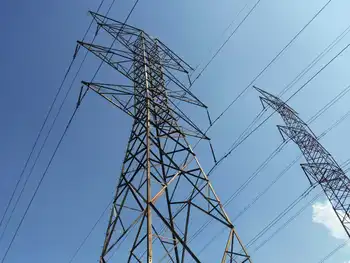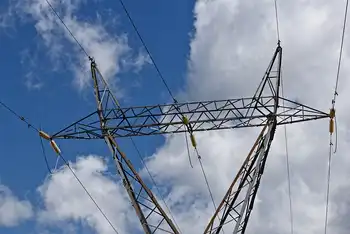Regulators consider Duke’s “Save-a-Watt” plan
By The News & Observer
Substation Relay Protection Training
Our customized live online or in‑person group training can be delivered to your staff at your location.

- Live Online
- 12 hours Instructor-led
- Group Training Available
Duke Energy Carolinas President Ellen Ruff said at the opening of a hearing by the state Utilities Commission that the company wants the panel to approve its proposed method for paying for energy efficiency.
Charlotte-based Duke Energy wants to initially charge the average customer about $1 more per month. The rate could go up or down in the years ahead to help recover much of the cost of building new power plants or buying electricity, along with a return. The utility's profits are regulated by the commission.
"We have an opportunity - not a guarantee - of recovering our program costs and achievable earnings comparable to supply side resources on our energy-efficient investments," Ruff told the commission.
But attorneys and advocates representing the state, utility consumers and environmentalists say Duke's "Save-a-Watt" plan is too expensive and doesn't save enough energy - only about a 1 percent reduction by 2015.
"We agree with the company that we need to give utilities proper incentives to maximize efficiency and energy conservation in particular," said Gudrun Thompson with the Southern Environmental Law Center. "This proposal is just not going to get the job done."
Duke Energy Carolinas presented the program in May 2007. It is designed in part to meet a state law that required electric utilities to generate 12.5 percent of their power from alternative energy sources or through energy savings by 2021.
Under Save-a-Watt, the utility would be permitted in 2009 to add on average 98 cents per month to the bills of its 1.8 million customers in North Carolina.
Duke would create financial incentives and rebates to encourage customers to save electricity by sealing windows and doors, buying fluorescent light bulbs or purchasing energy-efficient appliances.
The company wants to raise rates to an amount equal to 90 percent of what it would cost to generate the electricity that would have been produced had it not been for the energy-savings plan. If Save-a-Watt doesn't produce energy savings, Duke says it will return what it has charged on a prorated basis.
"The company will take the risk that its programs will perform and that customers only pay for actual results," Duke lawyer Lara Simmons Nichols said.
Duke can do much better than its projected energy savings, according to environmental groups that staged a small protest outside the hearing. They said Duke could reduce energy use by 1 percent annually.
"That's not an energy-efficient program. That's a small drop in the bucket of the world of possibility," said Shana Becker with the North Carolina Public Interest Research Group, one of about a dozen groups that want Duke Energy to withdraw the Save-a-Watt proposal.
Duke Energy plans to call several executives as witnesses. The panel also will meet Aug. 18 to hear from Duke Energy chief executive Jim Rogers. It's unclear when the committee would rule.











